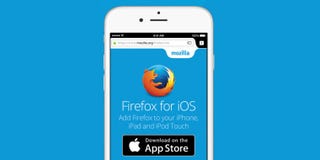


Facebook, Snapchat, and Twitter had the least accurate Play Store labels, while YouTube, Google Chrome, Gmail, WhatsApp, Instagram, TikTok, and Spotify did slightly better.įor example, TikTok's Play Store page says it doesn't share any data with third parties, but the company's privacy policy says it shares technical and usage information with third parties.

The biggest offenders were games like Minecraft, Hitman Sniper, Grand Theft Auto: San Andreas, Need For Speed: Most Wanted, Monument Valley, and more.īig social media apps also fared poorly in Mozilla's analysis. The Firefox developer found many discrepancies between what app developers say on the Play Store and what's in each app or service's privacy policy. This week, Mozilla released a study chiding Google for flaws in its Android Play Store app privacy label system. They're supposed to give users a good idea of what information apps collect and share, but Mozilla claims to have poked some holes in Google's Android app store policy. Why it matters: Over the last few years, Apple and Google have made app developers on their platforms include nutrition label-style privacy sheets on store pages.


 0 kommentar(er)
0 kommentar(er)
